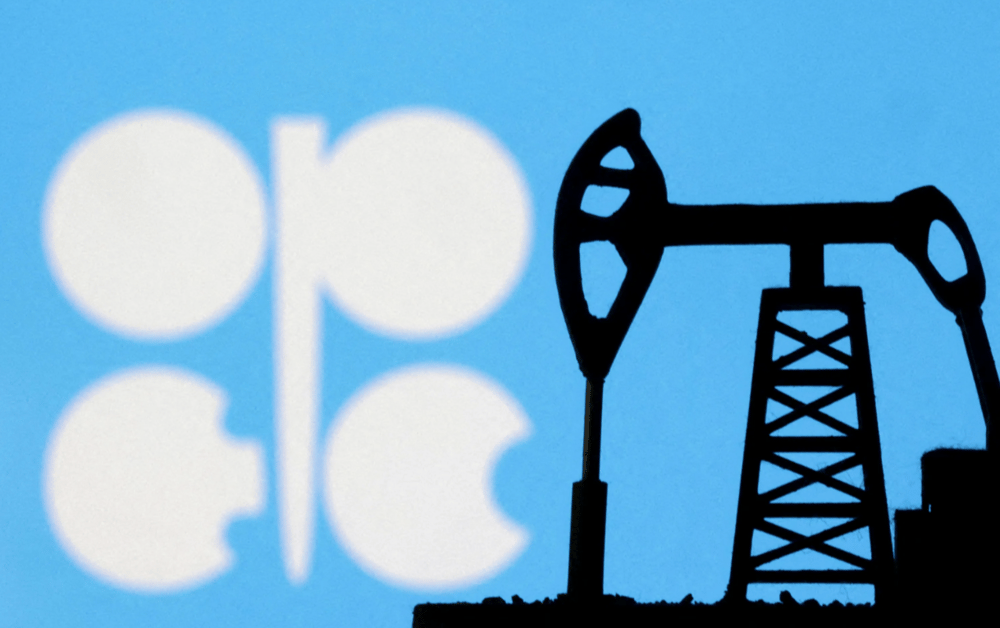The energy sector is grappling with increasing macroeconomic uncertainty, particularly in light of trade tensions and evolving tariffs. Two major players in the U.S. energy market—Coterra Energy $CTRA and Diamondback Energy $FANG —have both responded to this challenging environment by revising their capital expenditure plans. Coterra Energy recently reported a rise in first-quarter profits but also announced it would scale back its annual capital expenditures due to concerns over market volatility and the potential fallout from a trade war between the U.S. and China.
This adjustment in spending comes at a time when the global energy landscape is undergoing significant shifts, with both companies facing the prospect of reduced demand for oil and natural gas. In this article, we explore the factors influencing these changes and examine the broader implications for the energy market.
The Impact of Macro Uncertainty on Energy Investments
Coterra Energy’s decision to reduce its capital budget highlights the growing unease in the energy sector due to broader economic challenges. The company's adjustment follows similar moves from other energy firms, such as Diamondback Energy, which also recently revised its spending plans in light of global trade tensions.
Factors Driving the Shift in Capital Spending:
Trade War and Tariffs The ongoing trade dispute between the U.S. and China, coupled with the possibility of new tariffs, has introduced significant uncertainty into the energy markets. The imposition of tariffs on Chinese goods by the U.S. and potential retaliatory measures could weaken global demand for energy resources, including oil and natural gas. These tensions are making energy companies more cautious in their investment strategies.
Macroeconomic Uncertainty Economic volatility, spurred by the trade war, shifting geopolitical dynamics, and fluctuating commodity prices, has led many energy firms to adopt a more conservative approach. With unpredictable demand patterns, companies like Coterra Energy and Diamondback Energy are opting to prioritize financial stability over aggressive expansion plans.
Energy Demand Forecasts Lower-than-expected demand for energy, especially from key consumers such as China, has made companies more wary about investing in new projects. Energy firms are reassessing their production forecasts and capital expenditures to ensure they remain agile and responsive to changing market conditions.
Coterra Energy's Strategic Adjustments
Coterra Energy’s decision to reduce its capital expenditure budget, despite reporting a strong profit growth in the first quarter, reflects the company's caution in light of these broader macroeconomic challenges. While the company's quarterly performance exceeded expectations, it remains wary of potential disruptions caused by global trade tensions and economic instability.
Key Points on Coterra Energy’s Financial Performance and Strategy:
First-Quarter Profit Growth Coterra Energy delivered strong earnings in the first quarter, demonstrating its ability to adapt to market pressures and maintain profitability even as the energy landscape becomes more volatile.
Capital Expenditure Cuts The company’s decision to cut its annual capital expenditure budget is a direct response to ongoing macroeconomic uncertainty. This move is intended to preserve cash flow and maintain flexibility as the market continues to fluctuate.
Focus on Financial Prudence In the face of uncertain demand for oil and natural gas, Coterra Energy is focusing on maintaining financial health and prioritizing cost management. This approach is meant to ensure the company can weather potential downturns in the market without jeopardizing its long-term viability.
Diamondback Energy's Response to Economic Pressures
Like Coterra Energy, Diamondback Energy has also revised its capital spending plans, signaling the company's cautious outlook amid the uncertain global economic environment. Diamondback, a leading oil and gas producer in the Permian Basin, lowered its capital expenditure budget and production forecasts as a response to the reduced outlook for global energy demand.
Diamondback Energy’s Key Adjustments:
Reduced Capital Budget Diamondback Energy has scaled back its capital expenditure plans for the year, adjusting to the economic uncertainty and declining demand forecasts for oil and gas.
Lowered Production Outlook In addition to cutting its capital expenditures, Diamondback has revised its production guidance downwards. This adjustment reflects the company’s anticipation of weaker demand and the potential for further economic turbulence in the coming months.
Conservative Approach Amid Uncertainty The company is taking a more conservative approach to its capital projects, focusing on maintaining operational efficiency and balancing growth with market realities.
Conclusion: Energy Companies Adapt to Changing Market Conditions
Both Coterra Energy and Diamondback Energy have made strategic moves to adjust to the challenges posed by macroeconomic uncertainty, trade tensions, and reduced global demand for energy. Coterra’s decision to cut its capital expenditures, despite strong first-quarter profits, underscores the company's commitment to maintaining financial flexibility in an unpredictable market. Similarly, Diamondback Energy’s cautious outlook reflects the broader trend among energy firms to prioritize stability over expansion.
As the U.S. energy sector faces these challenges, companies are likely to remain conservative in their investment strategies, carefully managing their resources and adjusting their production forecasts to stay resilient in the face of ongoing economic pressures. The evolving trade landscape, along with shifts in global energy consumption, will continue to shape the future of the energy industry.








A pioneering sale of this nature could drive a paradigm shift in the evolution of automation in tech
Strategic market moves like this one lay the groundwork for transformative changes in tech automation